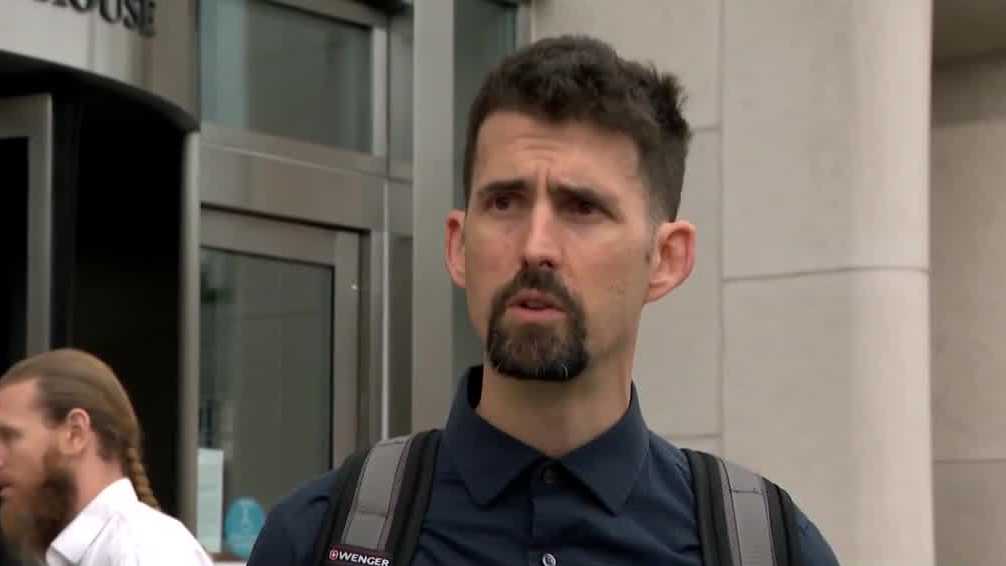
Keene Free State activist and radio host Ian Freeman has been sentenced to eight years in prison for money laundering and cryptocurrency crimes. The sentencing hearing took place at the U.S. District Court, where dozens of Freeman’s supporters showed up to show their solidarity. The atmosphere inside the courthouse was tense, with some supporters openly defiant to the U.S. Marshals and others shedding tears when the lengthy sentence was read aloud.
Due to the nature of the hearing being in federal court, no cameras were allowed. However, Freeman’s supporters gave him a standing ovation as he entered the courtroom, showcasing their unwavering support for him. Last year, a jury convicted Freeman of eight counts of federal financial crimes. Federal sentencing guidelines recommended a 20-year sentence, but his defense attorney, Mark Sisti, argued for a more lenient punishment. The eight-year sentence was seen as a generous reduction under the circumstances.
The crux of the issue lies in the uncharted territory of regulating cryptocurrency. The jury determined that Freeman had acted as an intermediary for scammers, enabling them to convert ill-gotten money from unsuspecting victims, including retirees, into Bitcoin while maintaining their anonymity. Freeman, however, maintained that he worked diligently to differentiate between scammers and legitimate Bitcoin customers. He asserted that he, too, was a victim of the scams.
After the hearing, Freeman’s new wife, Bonni Freeman, voiced her opinion on the sentence. She expressed her belief that those involved in the case were uninformed about Bitcoin, its workings, and the scams that were prevalent at the time. Bonni suggested that the decision to convict Freeman may have been motivated by spite or dislike, possibly due to his young wife.
Freeman intends to appeal his sentence. However, he will remain incarcerated until his appeal is heard. The defense plans to address the novel issues surrounding cryptocurrency regulation at the First Circuit, an opportunity to present and argue for their motion to dismiss the charges. This case brings to light the challenges faced by the legal system in understanding and regulating emerging technologies like cryptocurrency. It remains to be seen how the court will navigate this uncharted territory.
In the meantime, Freeman’s sentencing has generated support and attention from various corners. Supporters continue to rally around him, believing in his innocence and the need for a fair examination of the issues surrounding his case. As the legal battle moves forward, the implications of this trial could have far-reaching consequences for the future regulation of cryptocurrency and the financial crimes associated with it.






